A Call for a Low-Carb Diet
Replies
-
10% bfEveryone argues that the article sucks yet I eat 4000+ calories a day, do no cardio, lift some weights and my bf is 10% and I'm going to be 50 in a few months. I don't watch my calories. I keep my carbs at 20% and I eat as much as I want. Sorry you nay sayers can't beleive it but that's the way it is. Carb restriction works for some people regarding of how many calories they eat. My tdee is 2900, I've been eating 4000+ calories for months and lost weight which was fat. I'm getting leaner so I don't hold any merit in CICO anymore because it isn't as simple as that.
4000+ calories is a deficit
2900 TDEE
Defies physics
Almost 50 years old
Definitely not a troll. Right.
LOL. Maybe the government needs to experiment on my alien body. My pic was taken two weeks ago. I will be 50 in November so f you. The MFP forums have got to be the most thick headed cultish people on earth. Criticize all you want but it won't change the fact that I"m 10% body fat eating without a deficit. I feel sorry for you.
Other beliefs of The Cult of Physics:
Heliocentric view of the solar system
Gravity
Round Earth0 -
Bah if it works for you do it i guess. But I've lost a crap tonne and I haven't cut any carbs. Nor do i think being at 10% body fat is actually healthy. Yeah it's healthier than being obese and yeah people say it looks good. I think that the leanest BF that can honestly be described as healthy and natural is 13 - 16% or so. I mean yeah you might look pretty defined at 10% body fat lol but at those levels the lack of fat actually starts to negatively impact your overall health and performance. Not that I am really arguing with people who wanna hit 10% body fat or anything but realize it's probably just as bad for u as being 25% or so. If you are talking about the quest for abs then yeah low carb or carb cycling might make things easier. But if you just wanna be decently trim and healthy there is zero reason to cut carbs whatsoever. Short of maybe dipping to 10 for a short period to help loose skin tighten.0
-
This content has been removed.
-
Bah if it works for you do it i guess. But I've lost a crap tonne and I haven't cut any carbs. Nor do i think being at 10% body fat is actually healthy. Yeah it's healthier than being obese and yeah people say it looks good. I think that the leanest BF that can honestly be described as healthy and natural is 13 - 16% or so. I mean yeah you might look pretty defined at 10% body fat lol but at those levels the lack of fat actually starts to negatively impact your overall health and performance. Not that I am really arguing with people who wanna hit 10% body fat or anything but realize it's probably just as bad for u as being 25% or so. If you are talking about the quest for abs then yeah low carb or carb cycling might make things easier. But if you just wanna be decently trim and healthy there is zero reason to cut carbs whatsoever. Short of maybe dipping to 10 for a short period to help loose skin tighten.
I actually had bad triglycerides when I was at 16%. I reduced my carbs and halved my triglycerides. I didn't do this to look good I did it to make my blood work better since I am going to be 50 in a few months which for some reason people can't seem to believe. 10% is okay for an athlete. Any lower than 6% is probably not good. Plus, i have a ton of fat in my diet. 45 to 50 percent fat.0 -
It's much more detailed than that. There are hundreds, if not thousands, of different chemical reactions involved. Far more than simply burning by fire would be.
Look at the difference between the mere binding of fructose and glucose in both sucrose and HFCS. The fructose are unbound in HFCS whereas they are bound to glucose in sucrose. So, it actually takes on more step to unbind them in sucrose -- one of the reasons some posit that HFCS has a different reaction on weight gain in the body (though the mechanism is far from understood). And that's a difference in a extremely similar molecule. You talk about different molecules in the same macro and there is great variation, even more so between different macros.
Yeah...I know....biochemist here. You are just waving the flag of "complicated" to say that anything is possible and therefore your version of reality is correct. That is not hard to do but it also holds no value or informational content. Saying to someone "it is to complicated to understand, so here is exactly how it works" is clearly flawed.
Fact is though that although the actual network of metabolic interactions is very complex the general process is quite simple. Hydrocarbons are converted to water and carbon dioxide yielding energy in the form of chemical bonds which can be used to perform work.
Careful about advertising your credentials here. People go nuts about it (or at least did when I did).
I'm not trying to obscure with complexity, but I think it's important to acknowledge it's existence -- especially because sometimes it becomes a very important factor (like with insulin resistance). The fact of the matter is that a huge proportion of US adults are obese or overweight. There is also a significant portion of US adults that have insulin resistance. I have a hard time thinking that's mere coincidence.
And, I know it's comforting to think that everything is within our control, but sometimes it's not. Or that control is hidden or obscured by other interests (like adding things to certain foods that increase appetite or decrease satiety so that people will buy/eat more so that some companies will make more money). Getting to those underlying issues -- whether medical or otherwise -- is important. Dismissing it all as pretty much the same is also a disservice.
Yes. You got your (unnamed) degree from one of the top 10 (unnamed) research universities in the WORLD. About as impressive as the original research you post.0 -
Careful about advertising your credentials here. People go nuts about it (or at least did when I did).
I'm not trying to obscure with complexity, but I think it's important to acknowledge it's existence -- especially because sometimes it becomes a very important factor (like with insulin resistance). The fact of the matter is that a huge proportion of US adults are obese or overweight. There is also a significant portion of US adults that have insulin resistance. I have a hard time thinking that's mere coincidence.
And, I know it's comforting to think that everything is within our control, but sometimes it's not. Or that control is hidden or obscured by other interests (like adding things to certain foods that increase appetite or decrease satiety so that people will buy/eat more so that some companies will make more money). Getting to those underlying issues -- whether medical or otherwise -- is important. Dismissing it all as pretty much the same is also a disservice.
Yeah, "appeal to authority" is a logical fallacy; besides, Internet credentials are typically worth the time it takes to type them out.
Now, if you provided something verifiable, but no one seems to want to do that...
<eyeroll> I am waiting with baited breath for the explanation as to how mentioning your credentials is automatically an appeal to authority fallacy. I mentioned my training simply to state to the person with whom I was conversing that there was no reason to get long winded about biochemistry as I was fairly familiar with it already. I did not use the mention of that to then make some claim that you were supposed to believe simply due to my credential...which would be the fallacy.
I agree. But some folks here have huge chips on their shoulders about it and get really butthurt about it.0 -
Out of the two low carb diets I tried at the turn of the century, I had great success with Somersizing. The original version. I had poor results with Atkins. I could not handle the ketones discussions or stick peeing and the restrictions were too restrictive for me. But Suzanne Somers made it all seem so fun. I lost 51 lbs, had no loose skin and looked SLAMMIN'!0
-
10% bfEveryone argues that the article sucks yet I eat 4000+ calories a day, do no cardio, lift some weights and my bf is 10% and I'm going to be 50 in a few months. I don't watch my calories. I keep my carbs at 20% and I eat as much as I want. Sorry you nay sayers can't beleive it but that's the way it is. Carb restriction works for some people regarding of how many calories they eat. My tdee is 2900, I've been eating 4000+ calories for months and lost weight which was fat. I'm getting leaner so I don't hold any merit in CICO anymore because it isn't as simple as that.
4000+ calories is a deficit
2900 TDEE
Defies physics
Almost 50 years old
Definitely not a troll. Right.
LOL. Maybe the government needs to experiment on my alien body. My pic was taken two weeks ago. I will be 50 in November so f you. The MFP forums have got to be the most thick headed cultish people on earth. Criticize all you want but it won't change the fact that I"m 10% body fat eating without a deficit. I feel sorry for you.
No it's us low carb people who are cultish, didn't you know?
And worse yet we act morally superior, presumptuous and push our way on everyone else as being the best way for everyone.0 -
Careful about advertising your credentials here. People go nuts about it (or at least did when I did).
I'm not trying to obscure with complexity, but I think it's important to acknowledge it's existence -- especially because sometimes it becomes a very important factor (like with insulin resistance). The fact of the matter is that a huge proportion of US adults are obese or overweight. There is also a significant portion of US adults that have insulin resistance. I have a hard time thinking that's mere coincidence.
And, I know it's comforting to think that everything is within our control, but sometimes it's not. Or that control is hidden or obscured by other interests (like adding things to certain foods that increase appetite or decrease satiety so that people will buy/eat more so that some companies will make more money). Getting to those underlying issues -- whether medical or otherwise -- is important. Dismissing it all as pretty much the same is also a disservice.
Yes. You got your (unnamed) degree from one of the top 10 (unnamed) research universities in the WORLD. About as impressive as the original research you post.
Actually I did name the degree. Bachelors in Integrative Biology. I also dropped enough hints in response to people's questions that most stopped the interrogating, presumably because they did a quick search on Integrative Biology and Moorea research station. Got my JD there too. Go ahead, google it, genius. I'll wait.0 -
A calorie is a calorie. If you're talking about micronutrients, vitamins and minerals that's something different. But a calorie still equals a calorie.That's cool. I'm fine with low-carb if that works for people. Some people do better with fewer carbs. Personally, though, it's easier for ME to eat what I want and eat within a calorie goal than it is to cut out my favorite foods. (It's basically how I've maintained over the years as I've aged.) It needs to be sustainable and life-long for me, and that means plenty of pasta to keep me sane. I've never had weight problems and I've always eaten plenty of carbs. Do what works for YOU! :flowerforyou:
I agree we are all different and one diet definitely does not work for all. However, I do believe (and know for a fact) that not all calories are created equal. But if counting calories works for you then who cares what some NYT article says!
how can it be a fact if it is not a fact?
A calorie is just a unit of energy. Therefore they are all the same in that regards.
All diets work, If it puts you in a caloric deficit.
I don't care what you eat, i don't care if you count calories, It means nothing to me.
I just find it ridiculous when people tote falsities as facts, and promote the diet they are on as the best diet, or only diet.
I'm not promoting any kind of diet. All I'm saying is that not all calories are created equal. And yes that's a fact. You can't argue that 100 calories of cookies has the same effect to your body as 100 calories of celery would.
As far as the energy required to heat a certain amount of water a single degree through burning.
Unfortunately, our metabolism doesn't work the same way a fire does and why we can't eat everything that fire can burn.
Actually our metabolism works pretty much exactly like fire, converting hydrocarbons to carbon dioxide and water. Protein, carbs, fat...all hydrocarbons for a chemical engine.
You might say that our metabolism isn't 100% efficient and you would be correct but that inefficiency applies equally and therefore that 100 calories becomes the energetic equivalent of 75 calories regardless. Your claim seems to be that this is macro-centric on the basis of insulin resistance but I am sorry if you are eating from all three macros (which everyone does) that inefficiency would be distributed equally. If your body was terribly inneficient at processing carbohydrates then its response would be to burn additional carbohydrates to compensate or burn from the other macro groups in a way that compensated for that innefficiency...in otherwords you would burn MORE food to generate a similar amount of energy which mean that you would be prone to being thin, not overweight.
Type II diabeties is often caused by obesity. You seem to be claiming that obesity is caused by being type II diabetic. That is totally backwards.
It's much more detailed than that. There are hundreds, if not thousands, of different chemical reactions involved. Far more than simply burning by fire would be.
Look at the difference between the mere binding of fructose and glucose in both sucrose and HFCS. The fructose are unbound in HFCS whereas they are bound to glucose in sucrose. So, it actually takes on more step to unbind them in sucrose -- one of the reasons some posit that HFCS has a different reaction on weight gain in the body (though the mechanism is far from understood). And that's a difference in a extremely similar molecule. You talk about different molecules in the same macro and there is great variation, even more so between different macros.
Yeah...I know....biochemist here. You are just waving the flag of "complicated" to say that anything is possible and therefore your version of reality is correct. That is not hard to do but it also holds no value or informational content. Saying to someone "it is to complicated to understand, so here is exactly how it works" is clearly flawed.
Fact is though that although the actual network of metabolic interactions is very complex the general process is quite simple. Hydrocarbons are converted to water and carbon dioxide yielding energy in the form of chemical bonds which can be used to perform work.
Not a biochemist here, and on my phone so I can't try to puzzle out stuff I can't understand, but I think I'm developing a picture based on some of my learning a here today:
What insulin does is store energy in the muscle. Insulin resistance means that calories aren't being stored as glycogen, or protein in the muscle, but are broken down and stored as fat. In the mean time, the muscle is crying out for energy and whining at the insulin spike that predicts a flood of energy that never occurs. Thus, the body reacts with hunger.
I know I'm nowhere as smart or as capable of understanding nuance as Lindsey, but does that cover the basics of the process...or am I totally off?0 -
Careful about advertising your credentials here. People go nuts about it (or at least did when I did).
I'm not trying to obscure with complexity, but I think it's important to acknowledge it's existence -- especially because sometimes it becomes a very important factor (like with insulin resistance). The fact of the matter is that a huge proportion of US adults are obese or overweight. There is also a significant portion of US adults that have insulin resistance. I have a hard time thinking that's mere coincidence.
And, I know it's comforting to think that everything is within our control, but sometimes it's not. Or that control is hidden or obscured by other interests (like adding things to certain foods that increase appetite or decrease satiety so that people will buy/eat more so that some companies will make more money). Getting to those underlying issues -- whether medical or otherwise -- is important. Dismissing it all as pretty much the same is also a disservice.
Yes. You got your (unnamed) degree from one of the top 10 (unnamed) research universities in the WORLD. About as impressive as the original research you post.
Actually I did name the degree. Bachelors in Integrative Biology. I also dropped enough hints in response to people's questions that most stopped the interrogating, presumably because they did a quick search on Integrative Biology and Moorea research station. Got my JD there too. Go ahead, google it, genius. I'll wait.
Heh. You didn't mention it was a BS, but I guessed. I need to figure out who owes me $20.0 -
There's a lot of smart people in here. Still Suzanne Somer's made a kick *kitten* diet that works. Just sayin'.0
-
Careful about advertising your credentials here. People go nuts about it (or at least did when I did).
I'm not trying to obscure with complexity, but I think it's important to acknowledge it's existence -- especially because sometimes it becomes a very important factor (like with insulin resistance). The fact of the matter is that a huge proportion of US adults are obese or overweight. There is also a significant portion of US adults that have insulin resistance. I have a hard time thinking that's mere coincidence.
And, I know it's comforting to think that everything is within our control, but sometimes it's not. Or that control is hidden or obscured by other interests (like adding things to certain foods that increase appetite or decrease satiety so that people will buy/eat more so that some companies will make more money). Getting to those underlying issues -- whether medical or otherwise -- is important. Dismissing it all as pretty much the same is also a disservice.
Yes. You got your (unnamed) degree from one of the top 10 (unnamed) research universities in the WORLD. About as impressive as the original research you post.
Actually I did name the degree. Bachelors in Integrative Biology. I also dropped enough hints in response to people's questions that most stopped the interrogating, presumably because they did a quick search on Integrative Biology and Moorea research station. Got my JD there too. Go ahead, google it, genius. I'll wait.
Heh. You didn't mention it was a BS, but I guessed. I need to figure out who owes me $20.
It actually isn't a BS. Berkeley doesn't give BS in Integrative Biology, Molecular and Cell Biology, Math or Physics -- we all get BAs because of how they divide things up in the College of Letters and Science. If you want a BS, you've got to go to the College of Chemistry, the College of Engineering or the College of Natural Resources. So a person with a bachelors in forestry will get a BS but a physicist won't. One of Berkeley's many jokes.
I know it's a shocking idea that I know myself better than you know me. But, 'tis true.0 -
Careful about advertising your credentials here. People go nuts about it (or at least did when I did).
I'm not trying to obscure with complexity, but I think it's important to acknowledge it's existence -- especially because sometimes it becomes a very important factor (like with insulin resistance). The fact of the matter is that a huge proportion of US adults are obese or overweight. There is also a significant portion of US adults that have insulin resistance. I have a hard time thinking that's mere coincidence.
And, I know it's comforting to think that everything is within our control, but sometimes it's not. Or that control is hidden or obscured by other interests (like adding things to certain foods that increase appetite or decrease satiety so that people will buy/eat more so that some companies will make more money). Getting to those underlying issues -- whether medical or otherwise -- is important. Dismissing it all as pretty much the same is also a disservice.
Yes. You got your (unnamed) degree from one of the top 10 (unnamed) research universities in the WORLD. About as impressive as the original research you post.
Actually I did name the degree. Bachelors in Integrative Biology. I also dropped enough hints in response to people's questions that most stopped the interrogating, presumably because they did a quick search on Integrative Biology and Moorea research station. Got my JD there too. Go ahead, google it, genius. I'll wait.
Heh. You didn't mention it was a BS, but I guessed. I need to figure out who owes me $20.
It actually isn't a BS. Berkeley doesn't give BS in Integrative Biology, Molecular and Cell Biology, Math or Physics -- we all get BAs because of how they divide things up in the College of Letters and Science. If you want a BS, you've got to go to the College of Chemistry, the College of Engineering or the College of Natural Resources. So a person with a bachelors in forestry will get a BS but a physicist won't. One of Berkeley's many jokes.
I know it's a shocking idea that I know myself better than you know me. But, 'tis true.
TIL Berkeley is crazy.0 -
Careful about advertising your credentials here. People go nuts about it (or at least did when I did).
I'm not trying to obscure with complexity, but I think it's important to acknowledge it's existence -- especially because sometimes it becomes a very important factor (like with insulin resistance). The fact of the matter is that a huge proportion of US adults are obese or overweight. There is also a significant portion of US adults that have insulin resistance. I have a hard time thinking that's mere coincidence.
And, I know it's comforting to think that everything is within our control, but sometimes it's not. Or that control is hidden or obscured by other interests (like adding things to certain foods that increase appetite or decrease satiety so that people will buy/eat more so that some companies will make more money). Getting to those underlying issues -- whether medical or otherwise -- is important. Dismissing it all as pretty much the same is also a disservice.
Yes. You got your (unnamed) degree from one of the top 10 (unnamed) research universities in the WORLD. About as impressive as the original research you post.
Actually I did name the degree. Bachelors in Integrative Biology. I also dropped enough hints in response to people's questions that most stopped the interrogating, presumably because they did a quick search on Integrative Biology and Moorea research station. Got my JD there too. Go ahead, google it, genius. I'll wait.
Heh. You didn't mention it was a BS, but I guessed. I need to figure out who owes me $20.
It actually isn't a BS. Berkeley doesn't give BS in Integrative Biology, Molecular and Cell Biology, Math or Physics -- we all get BAs because of how they divide things up in the College of Letters and Science. If you want a BS, you've got to go to the College of Chemistry, the College of Engineering or the College of Natural Resources. So a person with a bachelors in forestry will get a BS but a physicist won't. One of Berkeley's many jokes.
I know it's a shocking idea that I know myself better than you know me. But, 'tis true.
TIL Berkeley is crazy.
Berzerkley, actually.0 -
10% bfEveryone argues that the article sucks yet I eat 4000+ calories a day, do no cardio, lift some weights and my bf is 10% and I'm going to be 50 in a few months. I don't watch my calories. I keep my carbs at 20% and I eat as much as I want. Sorry you nay sayers can't beleive it but that's the way it is. Carb restriction works for some people regarding of how many calories they eat. My tdee is 2900, I've been eating 4000+ calories for months and lost weight which was fat. I'm getting leaner so I don't hold any merit in CICO anymore because it isn't as simple as that.
4000+ calories is a deficit
2900 TDEE
Defies physics
Almost 50 years old
Definitely not a troll. Right.
LOL. Maybe the government needs to experiment on my alien body. My pic was taken two weeks ago. I will be 50 in November so f you. The MFP forums have got to be the most thick headed cultish people on earth. Criticize all you want but it won't change the fact that I"m 10% body fat eating without a deficit. I feel sorry for you.
I must now apply for a job with the government to be chosen for in charge of the experimenting on your alien body. :bigsmile:0 -
Careful about advertising your credentials here. People go nuts about it (or at least did when I did).
I'm not trying to obscure with complexity, but I think it's important to acknowledge it's existence -- especially because sometimes it becomes a very important factor (like with insulin resistance). The fact of the matter is that a huge proportion of US adults are obese or overweight. There is also a significant portion of US adults that have insulin resistance. I have a hard time thinking that's mere coincidence.
And, I know it's comforting to think that everything is within our control, but sometimes it's not. Or that control is hidden or obscured by other interests (like adding things to certain foods that increase appetite or decrease satiety so that people will buy/eat more so that some companies will make more money). Getting to those underlying issues -- whether medical or otherwise -- is important. Dismissing it all as pretty much the same is also a disservice.
Yes. You got your (unnamed) degree from one of the top 10 (unnamed) research universities in the WORLD. About as impressive as the original research you post.
Actually I did name the degree. Bachelors in Integrative Biology. I also dropped enough hints in response to people's questions that most stopped the interrogating, presumably because they did a quick search on Integrative Biology and Moorea research station. Got my JD there too. Go ahead, google it, genius. I'll wait.
Heh. You didn't mention it was a BS, but I guessed. I need to figure out who owes me $20.
It actually isn't a BS. Berkeley doesn't give BS in Integrative Biology, Molecular and Cell Biology, Math or Physics -- we all get BAs because of how they divide things up in the College of Letters and Science. If you want a BS, you've got to go to the College of Chemistry, the College of Engineering or the College of Natural Resources. So a person with a bachelors in forestry will get a BS but a physicist won't. One of Berkeley's many jokes.
I know it's a shocking idea that I know myself better than you know me. But, 'tis true.
TIL Berkeley is crazy.
Berzerkley, actually.
Ber-cray-cray0 -
10% bfEveryone argues that the article sucks yet I eat 4000+ calories a day, do no cardio, lift some weights and my bf is 10% and I'm going to be 50 in a few months. I don't watch my calories. I keep my carbs at 20% and I eat as much as I want. Sorry you nay sayers can't beleive it but that's the way it is. Carb restriction works for some people regarding of how many calories they eat. My tdee is 2900, I've been eating 4000+ calories for months and lost weight which was fat. I'm getting leaner so I don't hold any merit in CICO anymore because it isn't as simple as that.
4000+ calories is a deficit
2900 TDEE
Defies physics
Almost 50 years old
Definitely not a troll. Right.
LOL. Maybe the government needs to experiment on my alien body. My pic was taken two weeks ago. I will be 50 in November so f you. The MFP forums have got to be the most thick headed cultish people on earth. Criticize all you want but it won't change the fact that I"m 10% body fat eating without a deficit. I feel sorry for you.
I must now apply for a job with the government to be chosen for in charge of the experimenting on your alien body. :bigsmile:
You saucy minx. I'll be your assistant.0 -
I don't know if I'll need help. I feel like I have a solid plan.
10% bfEveryone argues that the article sucks yet I eat 4000+ calories a day, do no cardio, lift some weights and my bf is 10% and I'm going to be 50 in a few months. I don't watch my calories. I keep my carbs at 20% and I eat as much as I want. Sorry you nay sayers can't beleive it but that's the way it is. Carb restriction works for some people regarding of how many calories they eat. My tdee is 2900, I've been eating 4000+ calories for months and lost weight which was fat. I'm getting leaner so I don't hold any merit in CICO anymore because it isn't as simple as that.
4000+ calories is a deficit
2900 TDEE
Defies physics
Almost 50 years old
Definitely not a troll. Right.
LOL. Maybe the government needs to experiment on my alien body. My pic was taken two weeks ago. I will be 50 in November so f you. The MFP forums have got to be the most thick headed cultish people on earth. Criticize all you want but it won't change the fact that I"m 10% body fat eating without a deficit. I feel sorry for you.
I must now apply for a job with the government to be chosen for in charge of the experimenting on your alien body. :bigsmile:
You saucy minx. I'll be your assistant.0 -
Yes. I. Do.0
-

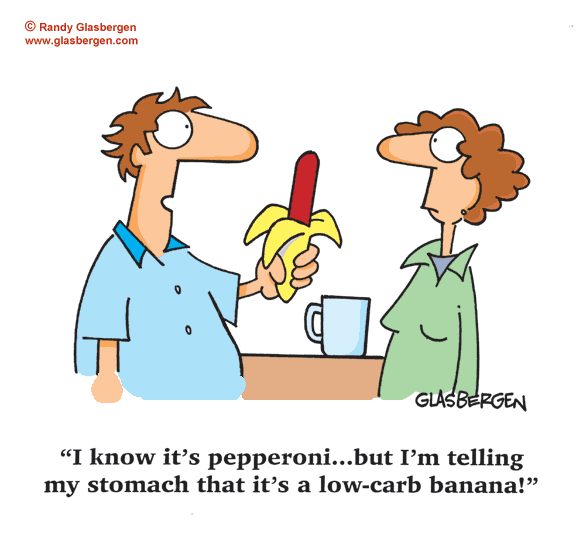
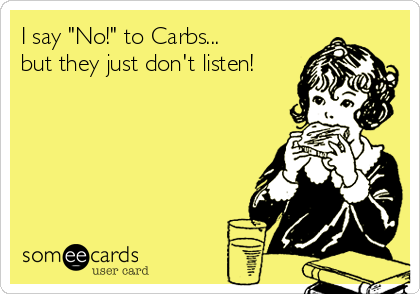
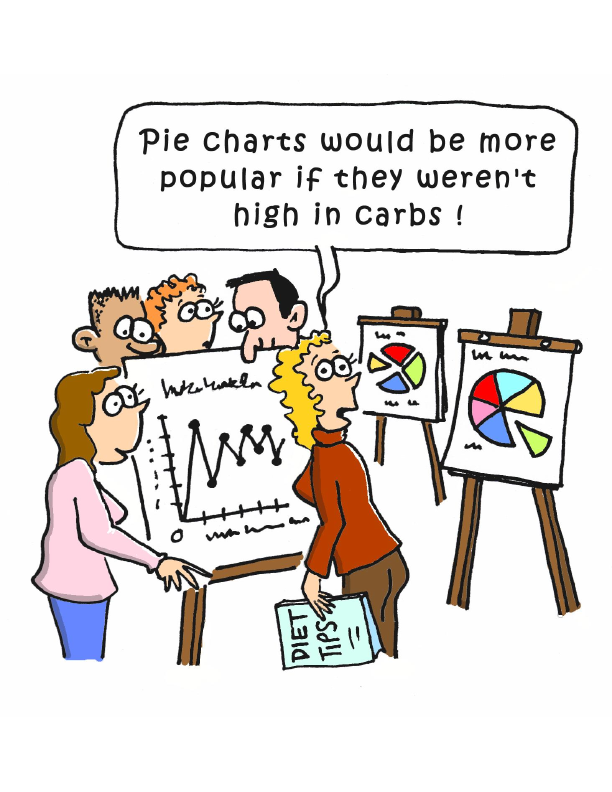

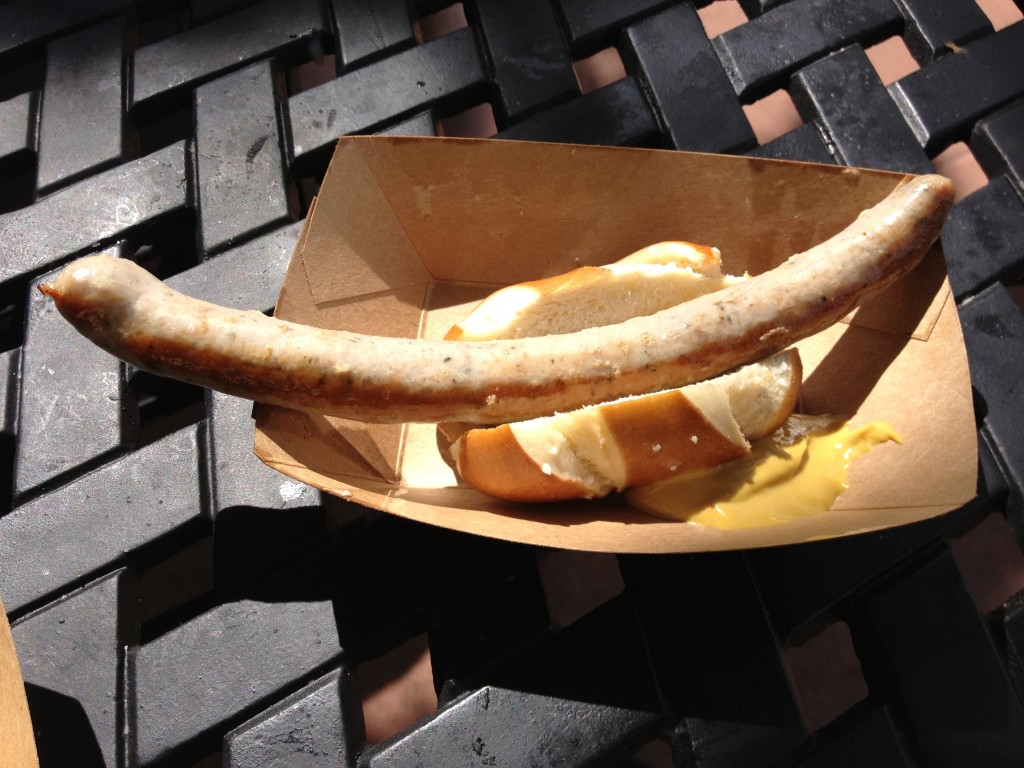 low carb hot dog
low carb hot dog

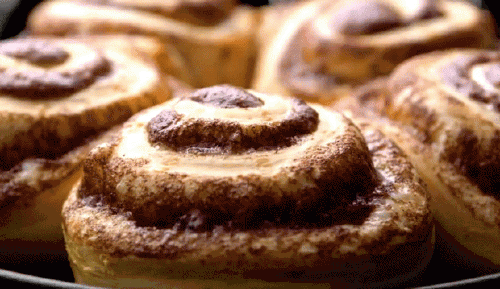


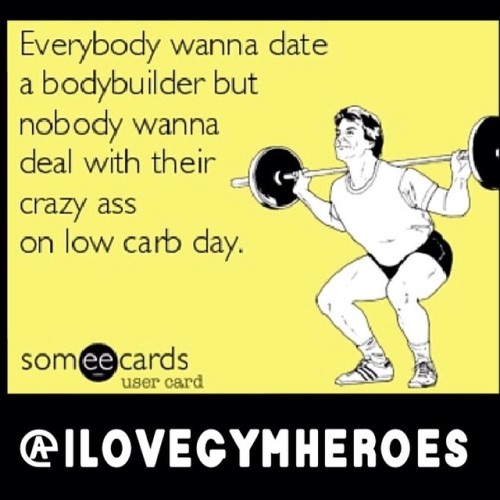

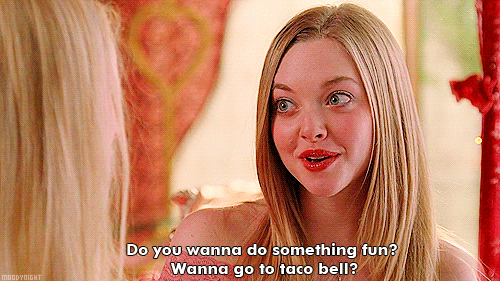

Hey DJ keep playin' that song, all niiiiiiiiiiiiiiiite, onnnn and onnnnnnnnnnnnn and onnnnnnnnnnn and caaaaaarbs!0 -
This content has been removed.
-
I'm doing low carb and watching my calories. Perhaps I shall experiment and see if this study is onto something!0
-
Not a biochemist here, and on my phone so I can't try to puzzle out stuff I can't understand, but I think I'm developing a picture based on some of my learning a here today:
What insulin does is store energy in the muscle. Insulin resistance means that calories aren't being stored as glycogen, or protein in the muscle, but are broken down and stored as fat. In the mean time, the muscle is crying out for energy and whining at the insulin spike that predicts a flood of energy that never occurs. Thus, the body reacts with hunger.
I know I'm nowhere as smart or as capable of understanding nuance as Lindsey, but does that cover the basics of the process...or am I totally off?
Yes, and you are exhausted. However when you eat low carb it changes your hormone levels (testosterone levels among others) and increases insulin sensitivity. I think that is why people think some of us attribute magical qualities to our diets. When we eat low carb our insulin sensitivity increases. Then we can eat more calories than before, feel less hungry and have more energy.
I hope I am explaining well. I typed this out once but the thread was full, grrr... :huh:
And seriously, I know nothing about you. I have no idea how "smart or capable of understanding nuance" you are. You can't be expected to be aware of every possible medical condition in the world, but you seem open to learning about new things.
Lindsey, I'm not sure I ever would have left French Polynesia!0 -
Not a biochemist here, and on my phone so I can't try to puzzle out stuff I can't understand, but I think I'm developing a picture based on some of my learning a here today:
What insulin does is store energy in the muscle. Insulin resistance means that calories aren't being stored as glycogen, or protein in the muscle, but are broken down and stored as fat. In the mean time, the muscle is crying out for energy and whining at the insulin spike that predicts a flood of energy that never occurs. Thus, the body reacts with hunger.
I know I'm nowhere as smart or as capable of understanding nuance as Lindsey, but does that cover the basics of the process...or am I totally off?
Yes, and you are exhausted. However when you eat low carb it changes your hormone levels (testosterone levels among others) and increases insulin sensitivity. I think that is why people think some of us attribute magical qualities to our diets. When we eat low carb our insulin sensitivity increases. Then we can eat more calories than before, feel less hungry and have more energy.
I hope I am explaining well. I typed this out once but the thread was full, grrr... :huh:
And seriously, I know nothing about you. I have no idea how "smart or capable of understanding nuance" you are. You can't be expected to be aware of every possible medical condition in the world, but you seem open to learning about new things.
Lindsey, I'm not sure I ever would have left French Polynesia!
Well, everybody else seems committed to making it as complex as possible.
That's not a Cico issue (I know I'll be corrected if I'm wrong). All the calories are being accounted for.
It's a calorie partioning issue - the actual decision the body makes about whether to store excess calories as fat or muscle or use them as fuel.
I bet the alien is talking about the same thing. The calories he's consuming are adding weight to his body...but he'd argue that they're all being stored as muscle.0 -
Not a biochemist here, and on my phone so I can't try to puzzle out stuff I can't understand, but I think I'm developing a picture based on some of my learning a here today:
What insulin does is store energy in the muscle. Insulin resistance means that calories aren't being stored as glycogen, or protein in the muscle, but are broken down and stored as fat. In the mean time, the muscle is crying out for energy and whining at the insulin spike that predicts a flood of energy that never occurs. Thus, the body reacts with hunger.
I know I'm nowhere as smart or as capable of understanding nuance as Lindsey, but does that cover the basics of the process...or am I totally off?
Yes, and you are exhausted. However when you eat low carb it changes your hormone levels (testosterone levels among others) and increases insulin sensitivity. I think that is why people think some of us attribute magical qualities to our diets. When we eat low carb our insulin sensitivity increases. Then we can eat more calories than before, feel less hungry and have more energy.
I hope I am explaining well. I typed this out once but the thread was full, grrr... :huh:
And seriously, I know nothing about you. I have no idea how "smart or capable of understanding nuance" you are. You can't be expected to be aware of every possible medical condition in the world, but you seem open to learning about new things.
Lindsey, I'm not sure I ever would have left French Polynesia!
You know, island life just isn't for me. Too slow. And I'm not a huge fan of heat and humidity -- I'd much prefer too cold than too hot. Nice place to visit, but wouldn't want to live there (though the people were extremely kind and awesome).0 -





 low carb hot dog
low carb hot dog








Hey DJ keep playin' that song, all niiiiiiiiiiiiiiiite, onnnn and onnnnnnnnnnnnn and onnnnnnnnnnn and caaaaaarbs!
Wow - someone seems sensitive to low carbs.
Well done - gif overachiever! boom, high five!0 -
I'm just going to leave this here:
http://examine.com/blog/is-low-carb-really-the-best-weight-loss-diet0 -
Not a biochemist here, and on my phone so I can't try to puzzle out stuff I can't understand, but I think I'm developing a picture based on some of my learning a here today:
What insulin does is store energy in the muscle. Insulin resistance means that calories aren't being stored as glycogen, or protein in the muscle, but are broken down and stored as fat. In the mean time, the muscle is crying out for energy and whining at the insulin spike that predicts a flood of energy that never occurs. Thus, the body reacts with hunger.
I know I'm nowhere as smart or as capable of understanding nuance as Lindsey, but does that cover the basics of the process...or am I totally off?
Yes, and you are exhausted. However when you eat low carb it changes your hormone levels (testosterone levels among others) and increases insulin sensitivity. I think that is why people think some of us attribute magical qualities to our diets. When we eat low carb our insulin sensitivity increases. Then we can eat more calories than before, feel less hungry and have more energy.
I hope I am explaining well. I typed this out once but the thread was full, grrr... :huh:
And seriously, I know nothing about you. I have no idea how "smart or capable of understanding nuance" you are. You can't be expected to be aware of every possible medical condition in the world, but you seem open to learning about new things.
Lindsey, I'm not sure I ever would have left French Polynesia!
Well, everybody else seems committed to making it as complex as possible.
That's not a Cico issue (I know I'll be corrected if I'm wrong). All the calories are being accounted for.
It's a calorie partioning issue - the actual decision the body makes about whether to store excess calories as fat or muscle or use them as fuel.
I bet the alien is talking about the same thing. The calories he's consuming are adding weight to his body...but he'd argue that they're all being stored as muscle.
Or maybe it is the "can somebody die of starvation while retaining fat" example we've been looking for. Though, really, we'd need to see something like this regularly without a life-threatening disease to bring CICO into question.
I'm sure the people who are researching the question have already addressed it.0 -
I'm just going to leave this here:
http://examine.com/blog/is-low-carb-really-the-best-weight-loss-diet
Wonderful analysis! Thank you!0
This discussion has been closed.
Categories
- All Categories
- 1.4M Health, Wellness and Goals
- 395.9K Introduce Yourself
- 44.1K Getting Started
- 260.7K Health and Weight Loss
- 176.3K Food and Nutrition
- 47.6K Recipes
- 232.8K Fitness and Exercise
- 448 Sleep, Mindfulness and Overall Wellness
- 6.5K Goal: Maintaining Weight
- 8.6K Goal: Gaining Weight and Body Building
- 153.3K Motivation and Support
- 8.2K Challenges
- 1.3K Debate Club
- 96.4K Chit-Chat
- 2.5K Fun and Games
- 4.4K MyFitnessPal Information
- 16 News and Announcements
- 18 MyFitnessPal Academy
- 1.4K Feature Suggestions and Ideas
- 3K MyFitnessPal Tech Support Questions









